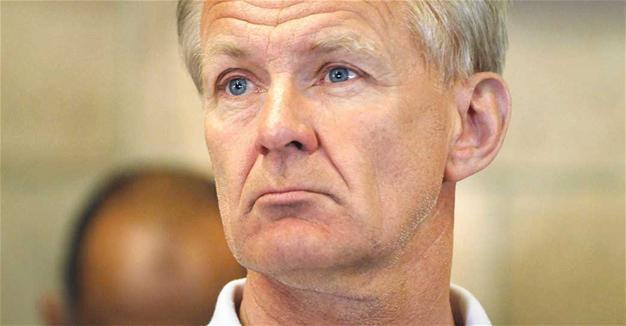Richest countries are the least generous in supporting refugees: UN official
Sevil Erkuş - ANKARA
 Many of the richest countries are the “least generous” in supporting refugees or displaced people, a U.N. official and humanitarian aid expert has said, adding that Europe and the U.S. are making “embarrassingly” small efforts in this regard.
Many of the richest countries are the “least generous” in supporting refugees or displaced people, a U.N. official and humanitarian aid expert has said, adding that Europe and the U.S. are making “embarrassingly” small efforts in this regard. “Turkey is now the number one country in the world in hosting people that need protection. There are also other extraordinarily generous countries, actually in many cases poor countries,” Jan Egeland, Special Advisor to the U.N. Special Envoy for Syria and Secretary General of the Norwegian Refugee Council (NRC), told the Hürriyet Daily News.
Egeland expressed his gratitude for Turkey’s efforts in hosting nearly 3.4 million refugees and applauded the decision to open Turkish schools for Syrians and provide Syrians with work permits for employment opportunities in the country.
“It has been disastrous in many countries of the world that the host country does not allow people to work. They also provide very few education opportunities,” he said.
“In these instances, people feel that they are wasting their lives and become very frustrated because it takes more time than expected to be able to return home,” Egeland noted.
The NRC has been operating in Turkey for two years and now wants to extend its permission, which was the reason for Egeland’s discussions with the Turkish authorities in Ankara on Aug. 3.
“We are willing to support the efforts of the Turkish government and NGOs, as we have done for two years. We have been helping support the effort to prepare Syrian youths and children to be able to go to school, for example, and attend language courses. That is something that we could also do in the future if the government is interested in us continuing such services,” said Egeland.
He also noted that the NRC has paused its cross border work from Turkey to Syria and is assessing the next phase, which it wants to discuss with the government.
“We have mostly been doing work in the Idlib region. We also did cross-border [assistance] to the Aleppo region. But things have been changing rapidly inside Syria and we are also reassessing where we can reach people. The most important thing for us is to reach as many people, as cost efficiently as possible, with as good assistance as possible. We are very concerned about fighting among the opposition groups in Idlib. It has become more difficult to work in Idlib and we need to find a way to reach it. We can now reach Aleppo city from Damascus,” Egeland said.
Hayat Tahrir al-Sham, which is dominated by an al-Qaeda affiliate and is known as HTS, took control of Idlib in Syria after Ahrar al-Sham, an Islamist group backed by Turkey and some Gulf countries, withdrew following months-long clashes.
Turkey closed the border after the HTS seized control of the Bab al-Hawa border crossing, 60km north of Idlib city, a key gateway for humanitarian aid entering the province from Turkey.
















